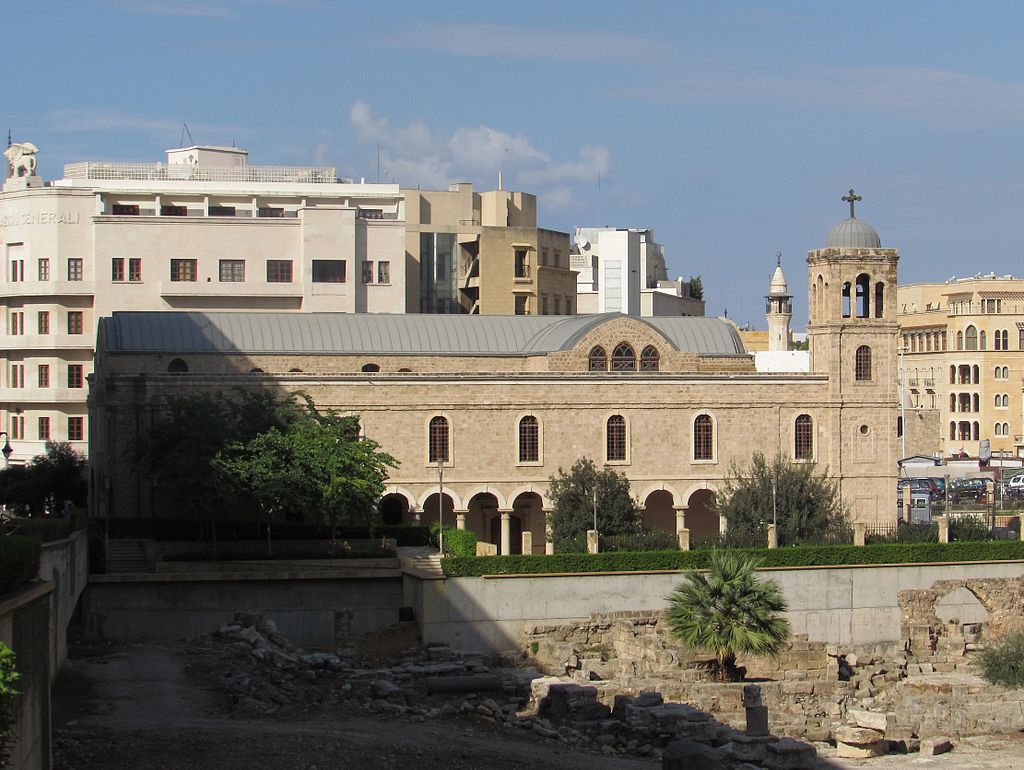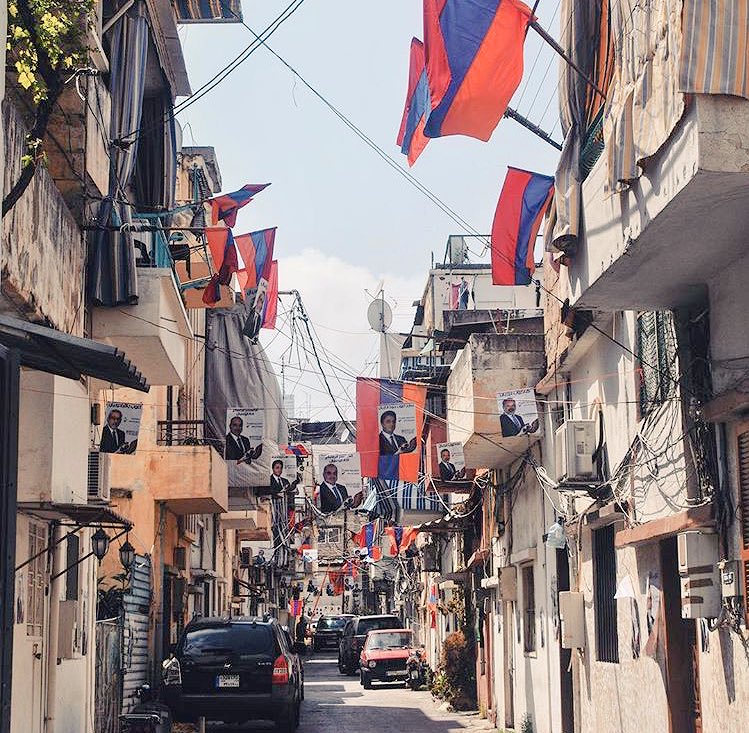Lebanon has one of the oldest and strongest Armenian communities in the Middle East, at the same time Turkey is heavily expanding its influence in the country. That’s why there are different reactions to the ongoing war that burst out a month ago in Artsakh.
Text: Zareh-Sevag Sarkissian
The Armenians of Lebanon in the early 19th century numbered only around 1,200 – 1,300 residents who largely inhabited the urban centers (Boudjikanian, p. 36). The brunt of the Armenian presence in Lebanon was not absorbed until the post-Genocide period, when Armenians settled in the urban coastal centers, and in other rural areas such as Bekfaya and Anjar. Over the course of the Armenian community’s history in Lebanon it has grown and been a huge contributor in various sectors, industries, businesses, and academia.
The community’s loyalty tied to the motherland has always stayed firm, and it embodied itself in the many civil and political organizations that were founded in Lebanon; they consisted of cultural organizations, nursing homes, educational centers, radio stations, newspapers, youth centers, and so on… The relations with the other Lebanese factions nonetheless were ever shifting and complicated. These relations, though, could not have manifested themselves better than with the simple observation ofthe other religious groups’reaction of either supporting or opposing the Armenian side in the ongoing Artsakh war. Two particular sects, who have made clear their stance during and prior to the conflict, have been the Maronites and the Sunnis of Lebanon.

Saint George Greek Orthodox Cathedral in Beirut
Now it is important to distinguish the support of the two. In terms of the Maronites, it is a majority-shared outlook along with other Christian sects in Lebanon. Say, for instance, the Greek Orthodox community, who such as the Greeks and Cypriots share a fraternal bond with the Armenian community. The Maronite support was vocalized during the Sunday prayer of the Patriarch Moran Mar Bechara Boutros al-Rahi on the 18th of October. He stated: “…and we mention in our prayer, brethren to us who suffer from an ongoing war between Azerbaijan and Armenia in the vicinity of the encircled Nagorno Karabakh also known as Artsakh…” ; by brethren, of course, he refers to the Armenians. He expressed his grief over the inability of the peripheral countries of the conflict to broker a ceasefire and the return to relatively-peaceful relations. He also called for the United Nations to act as a mediator to stop hostilities, preserve the sovereignty of the warring nations, and to provide the rightful terms for the Armenian people (in Artsakh) to be blessed with security, liberty, and reunion in the framework of international law.
Another supporter, from the academic sphere, was Dr. Imad Mrad, a history professor. This support came in the form of an interview conducted by the MTV news broadcasting station within its ‘Heritage and Culture’ program. MTV is traditionally a Christian-owned company with also the majority of its stakeholders being Christian. During the interview, Dr. Mrad provided the accurate and non-biased background and historical claim of the Armenians to the Artsakh region; as well as the general history of the Armenians throughout millennia, and with the current geopolitical ramifications within the conflicting region that stands out as a Neo-Ottoman expansion propagated by the Erdogan regime in Turkey.

TV host Neshan Der Haroutiounian
In the case of the Sunni community in Lebanon, the relations could not be any more contrasting. The latest such example comes prior to the Azerbaijani aggressions of July 2020 on the Armenian borders in the Nakhichevan and Tavush regions there had been renewed tensions and hostile fervor between a sizable Sunni community and the Armenians. This came during a heated argument on one of Al-Jadeed’s programs featuring the host Neshan Der Haroutiounian who called Erdogan and the Turks ‘insidious’. This sparked anti-Armenian sentiment and Armenophobic protests in Beirut with the Turks hurling insults at Armenians and flashing Turkish flags all the while. Even during basketball games between the Armenian team Homenetmen and the Sunni Al-Riyadi, the fans of the latter would do the same in hurling insults and sporting the Turkish flag as a means of demoralizing the former team. Furthermore, an online frenzy among the pro-Turk Sunnis eventually lead up to a criminal trial brought up against Der Haroutiounian from the Erdogan administration. However, thus far, no violent clashes have occurred.
According to Shahan Kandaharian from the Aztag Daily newsletter, Turkey has always steadily worked on building influence within its surrounding region in particular in Lebanon. This has been by cultural and/or political means ranging from, but not limited to, giving citizenship, to rebuilding schools, teaching Turkish, giving scholarships out for students to study in Turkey, contracts with universities, organizations, and so on… Kandaharian also points out that many of these so-called organizations are Lebanese in name, but basically Turkish entities. This could be said of the Lebanese-Arab ‘Mardalia Union’ headed by one Mounir Hassan, who directed the main slander and insults against Der Haroutiounian, stating furtherly that “they and their Turkish fathers are proud of the Armenian Genocide, because Armenians deserved it…” These Sunnis thus, have adopted the Turkish attitude towards the Armenian nation. They firmly believe that Turkey is the ‘savior’ and defender of Islam from Western encroachment of harmful values and attitudes; while the Armenian infidel was the traitor during the First World War who got what was coming to him. Additionally, they have taken the Azerbaijani side in the Artsakh war, always showing media bias in favor of Azerbaijan.

Armenian district in Bourj Hammoud
There is clearly a rift within the Lebanese society, for it has been the first Arab country ever to recognize the events of 1915 as genocide long before the only other two, Syria and Libya did so too. Then on the other hand, there are clear agents of Neo-Ottomanism willingly and/or unintentionally promoting the same kind of zeal against Armenians as their predecessors did in the beginning of the 20th century.
